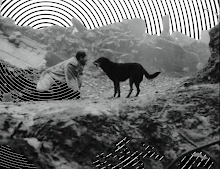One could call the new phase: political globalisation. What happens? Simple. The new economic strength of the emerging countries crystallises into political power. This is no surprise. The nexus between money and power is as old as money itself. The credit crisis has accelerated the process. It is most visible in the unprecedented financial leverage which China has gained over the US.
Two events stand out in this respect.
The first is the founding of the G20 at the height of the credit crisis in the autumn of 2008. This was a turning point. Emerging countries – India, China, Brazil, South Africa, Turkey – got seats at the table of world leaders for the first time, next to the old G7. They could no longer be excluded from deal-making forums. The credit crisis also discredited a certain triumphant style of market economy. Even investment bankers today admit that stronger rules and a vigorous state are required. Sometimes economies have too much regulation, sometimes they have dramatically little.
Let’s not forget that the Europeans took the initiative to upgrade the G20 to summit-level. This was due above all to President Sarkozy during his EU Presidency and Prime Minister Brown. Europeans can still be decisive in shaping global governance!
The second event in the public awareness of global power shifts was last year's Copenhagen Climate Summit. I have already mentioned it. Here also, we Europeans were leaders in bringing others to the table and in setting a standard for emission reductions. Chancellor Merkel was very active on this. Without us, the others would not have committed as much as they did in Copenhagen. The fact remains, though, that we were left out of the final deal between the US and four big emerging countries. We learned that a strategy of moral persuasion, of leading by example, does not suffice to win an argument.
(...)
In order to confront such changes, the members of the Union need to be strong and need to be
united. Therefore I believe that the two most important domains of the European Council are
economic policy and foreign policy. Simply put: economic policy to be strong, foreign policy to be united."
And then follows a presentation of two reforms - not in the texts but in the attitude- proposed and implemented by the new-appointed president of Europe. Rest of the speech is here.
Needless to say those two reforms have been promoted by some Member States and fighted for years by others.
Needless to say that such a clear vision and a frank wilingness has not been heard during decades in the EU.
Needless to say this is a surprise for the pragmatic president of the Commission and a worry for the Member States's leaders who, at first glance, thought to have appointed a low-profile politician at this major position.
For recall, EU's history has been made on crisis but also on personalities featured by a discreet, unspectacular but firm strength.




















No comments:
Post a Comment